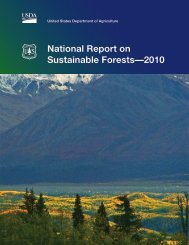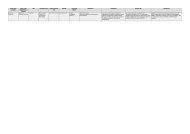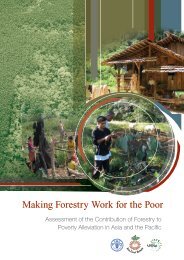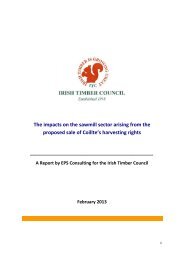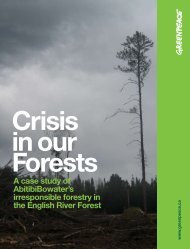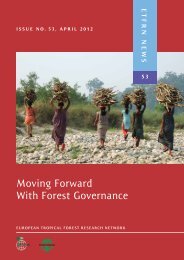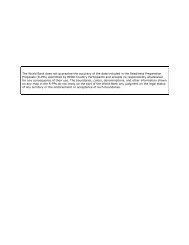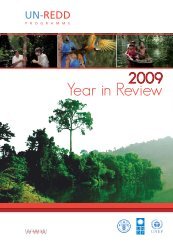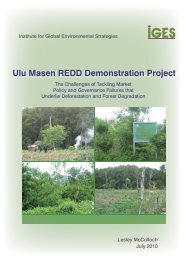pdf 1242 KByte - JIKO
pdf 1242 KByte - JIKO
pdf 1242 KByte - JIKO
You also want an ePaper? Increase the reach of your titles
YUMPU automatically turns print PDFs into web optimized ePapers that Google loves.
Policy Paper: Assessing prerequisites for market-based REDD+ activities 28<br />
4.2 US federal: The Waxman-Markey bill<br />
The Waxman-Markey Bill, also known as the American Clean Energy and Security Act, can be regarded as<br />
one of the most promising approaches to curb greenhouse gases at the US-federal level. However, after having<br />
been approved by the House of Representatives the bill failed to pass the Senate. Despite this breakdown<br />
and the fact that its approval will foreseeable remain highly uncertain for the next years to come, the bill is<br />
illustrative since it considers the integration of forestry offset credits into the proposed cap-and-trade systems<br />
to fight deforestation.<br />
The bill contains several country eligibility criteria that can be clearly grouped along the three building<br />
blocks discussed above. Regarding technical readiness, countries are required the “technical capacity to<br />
monitor, measure, report and verify carbon fluxes from deforestation using internationally accepted methodologies<br />
such as those established by the Intergovernmental Panel on Climate Change” (2 A). The bill further<br />
contains several requirements with regard to the institutional and legal structure of the country such as<br />
“strong governance and mechanisms to equitable distribute deforestation resources”. Policy readiness is addressed<br />
by requiring a forest sector strategic plan, which inter alia assesses drivers of deforestation and identifies<br />
adequate policies as well as steps to improve data collection and processing (para 3 A-C). On the basis<br />
of these requirements, a list of eligible countries would be established and regularly updated.<br />
Further requirements can be derived from the provisions for the individual activities which are described in<br />
greater detail and address different aspects including the participation of forest-dependent communities, protection<br />
of environmental sustainability and technical issues such as reference level setting and MRV of forest<br />
changes.<br />
In sum, the bill addresses several of the relevant aspects discussed in the above sections on REDD+ readiness.<br />
However, since acceptance of credits would be finally dependent on the REDD+ country being listed<br />
by the government, the government would have some room for assessing whether conditions for participating<br />
in the mechanism are actually met, before allowing its credits to access the market.<br />
4.3 The European position and the EU-ETS<br />
The European Union has adopted a critical position towards the use of forestry credits. Accordingly, the EU<br />
Emissions Trading Scheme (EU-ETS) does not accept CERs generated by afforestation and reforestation<br />
projects under the CDM (temporary certified emission reductions - tCERs and long-term certified emission<br />
reductions - lCERs). The main reasons for this decision are related to concerns regarding environmental integrity.<br />
Particularly the question on permanence is considered incompatible with a company-based trading<br />
system, since this could impose great liability risks on Member States (von Unger et al. 2012). Such concerns<br />
have ultimately led to the decision of the European Commission not to include forestry credits into the<br />
EU-ETS before 2020 (European Commission 2008). Regarding the application of forestry credits for government<br />
compliance the Commission adopted a slightly different position. Under the Effort-Sharing-<br />
Decision (ESD), which establishes binding targets for sectors not covered by the EU-ETS and which is,<br />
unlike the EU-ETS, not directed towards installations or individuals but to the Member States, tCERs and<br />
lCERs are accepted.<br />
Nicolas Kreibich, Christof Arens and Wolfgang Sterk<br />
Wuppertal Institute




